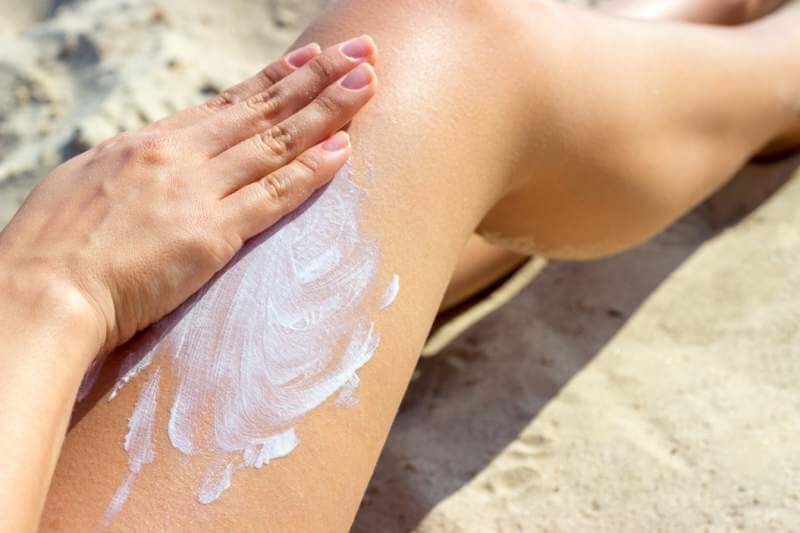As the seasons change, so will the type of skincare routine needed to accommodate the new weather and keep your skin at its best health. The condition of your skin will differ significantly depending on the weather. While more humidity makes the skin oily and blotchy, dry air sucks out moisture and causes your skin to dry and crack. It is essential to adjust your routine regularly throughout the year. This does not need to be complicated. Just a few simple changes will give you the healthy skin you need, no matter what the time of year.
Why Various Temperatures Have Different Effects on Skin
 In the summer, you will be exposed to higher temperatures and humidity. This can result in much oiler skin, which contributes to the clogging of pores, which in turn can lead to acne and discoloration. Increased sweat also contributes to clogged pores. In the winter, your blood vessels will narrow while the body tries to preserve heat. This results in the outer layer of skin becoming dry. Also, due to the lower humidity in the winter, the moisture in your skin will evaporate much more quickly. The colder air will basically suck out the skin’s moisture. All these things contribute to drier, flakier skin, and an increased tightness of the skin. Other influences, such as increased use of indoor heating, taking hotter showers, and wearing heavier fabrics, also contribute to drier skin in the winter.
In the summer, you will be exposed to higher temperatures and humidity. This can result in much oiler skin, which contributes to the clogging of pores, which in turn can lead to acne and discoloration. Increased sweat also contributes to clogged pores. In the winter, your blood vessels will narrow while the body tries to preserve heat. This results in the outer layer of skin becoming dry. Also, due to the lower humidity in the winter, the moisture in your skin will evaporate much more quickly. The colder air will basically suck out the skin’s moisture. All these things contribute to drier, flakier skin, and an increased tightness of the skin. Other influences, such as increased use of indoor heating, taking hotter showers, and wearing heavier fabrics, also contribute to drier skin in the winter.
How to Maintain Moisture in Summer and Winter
 Many people have trouble with dry skin in the winter and are not sure how to combat that. The most significant mistake people tend to make is using the same products throughout the year. You should be using the appropriate products that tackle the specific issues caused by the elements of each season. For example, in hot temperatures, hydration is vital. Remember, adequate hydration and moisture are essential to healthy skin. Drink lots of water and exfoliate while applying the best moisturizer for your skin type. Also, use a toner to combat the adverse effects of the oiliness. Oiliness is not equivalent to moisture. The optimal goal is to fight the oiliness while keeping moisture.
Many people have trouble with dry skin in the winter and are not sure how to combat that. The most significant mistake people tend to make is using the same products throughout the year. You should be using the appropriate products that tackle the specific issues caused by the elements of each season. For example, in hot temperatures, hydration is vital. Remember, adequate hydration and moisture are essential to healthy skin. Drink lots of water and exfoliate while applying the best moisturizer for your skin type. Also, use a toner to combat the adverse effects of the oiliness. Oiliness is not equivalent to moisture. The optimal goal is to fight the oiliness while keeping moisture.
On the other hand, in the winter, you will want to focus on sealing in moisture. This can be done by using things such as hydrating sheet masks and serums. You can incorporate these things into your nightly skincare routine. After cleansing your skin, apply a sheet mask, and leave it on for a few minutes. You can then use your moisturizer and serum to give your skin a boost in moisture. By the time the morning comes, your skin will feel refreshed. Never face the harsh winter temperatures without applying an adequate amount of product to your face. It is ideal to layer your moisturizer with a facial oil to prevent the moisture from escaping in the cold air.
The Importance of Sun Protection in Winter and Summer
 Another huge aspect of seasonal skincare is sun protection. It is common to assume that sunscreen is no longer a necessity in the winter. However, the sun has the same effects no matter the temperature, so it is crucial to wear sunscreen all year round. The best option is SPF 40+. Make sure to apply to all areas of the skin, especially areas that will be exposed to the sun. Incorporate sunscreen into your regular skincare routine along with moisturizing, exfoliating, and cleansing. Many skin moisturizers contain SPF protection. If you wear makeup, it might be a good idea to invest in tinted moisturizers or foundations that have SPF as well. There are also lipsticks and lip balms that contain sunscreen. On days when you will be outside for a prolonged amount of time, pack your sunscreen and reapply once every three hours.
Another huge aspect of seasonal skincare is sun protection. It is common to assume that sunscreen is no longer a necessity in the winter. However, the sun has the same effects no matter the temperature, so it is crucial to wear sunscreen all year round. The best option is SPF 40+. Make sure to apply to all areas of the skin, especially areas that will be exposed to the sun. Incorporate sunscreen into your regular skincare routine along with moisturizing, exfoliating, and cleansing. Many skin moisturizers contain SPF protection. If you wear makeup, it might be a good idea to invest in tinted moisturizers or foundations that have SPF as well. There are also lipsticks and lip balms that contain sunscreen. On days when you will be outside for a prolonged amount of time, pack your sunscreen and reapply once every three hours.
Other Ways to Maintain the Health of Your Skin
 A simple change in habits can make all the difference when it comes to your skin health. One thing people do to keep warm in winter is to take hot showers or baths. While it’s always nice to enjoy a hot shower, take care to not remain under the hot water for too long. Your skin will lose a lot of moisture due to the warm water. To combat this, use a moisturizing body wash and facial cleanser. An oil-based cleanser or a non-soap cleanser works best. They will ensure that your skin maintains the essential oils needed to keep it moisturized. Of course, if you still want to enjoy that bath, adding things to the bathwater that benefit the skin is encouraged. Oatmeal is cheap and easily accessible and makes a great moisturizer and exfoliator. Add some oatmeal to your bath to simultaneously moisturize your skin and to reduce the drying effect of the water.
A simple change in habits can make all the difference when it comes to your skin health. One thing people do to keep warm in winter is to take hot showers or baths. While it’s always nice to enjoy a hot shower, take care to not remain under the hot water for too long. Your skin will lose a lot of moisture due to the warm water. To combat this, use a moisturizing body wash and facial cleanser. An oil-based cleanser or a non-soap cleanser works best. They will ensure that your skin maintains the essential oils needed to keep it moisturized. Of course, if you still want to enjoy that bath, adding things to the bathwater that benefit the skin is encouraged. Oatmeal is cheap and easily accessible and makes a great moisturizer and exfoliator. Add some oatmeal to your bath to simultaneously moisturize your skin and to reduce the drying effect of the water.
You should also keep in mind how your skin reacts to the ways you stay warm or cool during the respective season. In the winter, people tend to spend time inside with indoor heating, which dries out the air. Consider purchasing a humidifier to maintain adequate moisture levels in the air, which will keep your skin hydrated while you’re inside. On the other hand, in the summer, people stay cool by swimming. If you enjoy swimming in the pool, always rinse your skin with cool water afterward to remove the chlorine and other harsh chemicals from the pool water. If you will be spending time outdoors, use sunscreen and wear light, loose clothing that covers as much skin as possible. The same goes for the winter. Try not to have your skin exposed to the cold air and make sure moisture is sealed into any exposed areas, like your face.
By making these simple adjustments to your seasonal skincare practices, your skin health will be better than ever with each passing season. A good tip is to have separate sets of products for summer and winter so that you are adequately prepared. That way, the transition will be smooth, and you will be able to maintain healthy skin with ease. No matter the weather.
Author Bio:
Richard Overmyer is a copywriter for TrueSkin Dermatology. Richard enjoys discussing the latest dermatology tips and trends to help people have healthy, youthful skin. In his spare time, he enjoys skiing, hiking, and pretty much anything that gets him active in the mountains, with lots of sunscreen!
